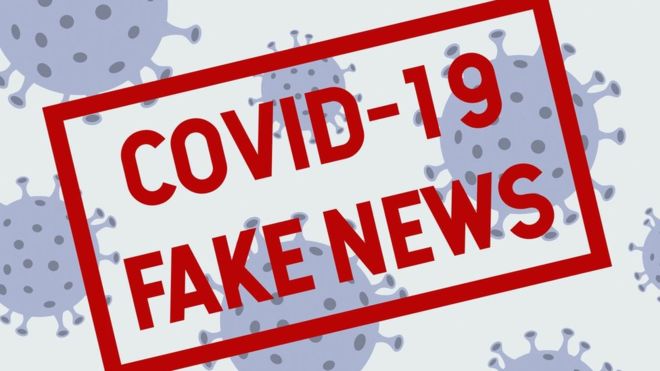In the wake of the COVID-19 pandemic, media houses complimented by social media users are constantly providing information on the pandemic. However, it is not uncommon that others use these mediums to circulate false or fake news that misinform and mislead the general public on issues surrounding the pandemic. This short article briefly looks at what constitutes fake news, free speech, free media and the criminal liabilities associated with the dissemination of fake news.
Fake news may be defined as the publication of intentional and knowingly false statements of fact, and may be described as rumors, misinformation, post truth, alternative facts, counter knowledge or just plain “damn” lies typically published and distributed on websites or social media for profit or social influence[1].It however excludes satirical publications that uses humor and exaggeration to criticize social and political issues[2].
The above definition is broad in scope and captures a wide range of instances that encompass false, intentional, misleading information calculated to influence the general public. On this note therefore, any untrue, rumored, intentional and misleading publication or statement on the COVID-19 pandemic or misinformation on the pandemic published or distributed to influence others will pass for fake news.
FREE SPEECH, MEDIA FREEDOM AND FAKE NEWS
The 1992 Constitution guarantees and protects the freedom of speech and expression[3] as well as media freedom and independence[4]. These rights and freedoms are key to the development of our democratic dispensation; for we cannot function as a democratic State if our fundamental rights and freedoms are curtailed. Free speech and free press encourage citizen participation and contribution towards the governance process; they further provide a forum for public comments and criticism of national issues[5]. However, this same forum opened for public comments has also become an avenue for fake and false news to thrive.
The reality is that fake news rides on the waves of these constitutionally guaranteed and protected freedom of speech and expression. Fake news has the potential of weakening the information function of our press and media[6]. It also has the potential to erode the legitimacy and credibility of reliable news on the COVID-19 pandemic by impairing the judgment of other members of society. It may further hamper the citizens’ ability to effectively partake in national discourse especially in this period of the COVID-19 pandemic.
It must however be noted that these fundamental rights and freedoms guaranteed and protected by the 1992 Constitution are not absolute. They are limited to the extent that they do not affect public order, public safety, public health and public welfare. These mentioned qualifications restricting these rights and freedoms are captured in the various provisions under Chapter 5 of the 1992 Constitution that deals with the protection of fundamental human rights and freedoms.
We now turn to look at some measures provided by our laws to regulate or check the publication and distribution of fake news.
CRIMINAL LIABILITY
Under Section 76 (1) of the Electronic Communications Act 2008 (Act 775), a person who by means of electronic communications knowingly sends communication which is false or misleading and likely to prejudice the efficiency of life saving services or to endanger the safety of any person commits an offence. To be guilty of an offence under this section, the prosecution must prove that the person who sent the false or misleading communication knew that the communication was false or misleading. Section 76 (2) provides that, “A person is taken to know that a communication is false or misleading if that person did not take reasonable steps to find out whether the communication was false, misleading, reckless or fraudulent.” Thus, if a person fails to take reasonable steps to ascertain whether or not the communication was false, misleading, reckless or fraudulent, that person may be liable for sending false communication. In addition to the foregoing, the false communication must be likely to prejudice the efficiency of life saving services or endanger the safety of any person.
Therefore, a person who sends false or fake news on the COVID-19 pandemic through electronic means such as social media especially WhatsApp, to the extent that it endangers the safety of any person or prejudices the efficiency of life saving services such as the steps being taken by the Government to halt and contain the virus, commits an offence and may be liable to a fine or a jail term not exceeding 5 years. It is not an excuse or a defence that the person did not know that the communication he or she was sending was false, if the person took no reasonable steps to determine whether the communication was false, misleading, reckless or fraudulent. It is also not an excuse that the person was not the originator of the false communication. Once the person sends or forwards the communication via electronic means and satisfies the legal test in section 76, that person would be liable for the offence. Indeed, the burden to prove that the person took reasonable steps to ascertain whether or not the communication was false, misleading, reckless or fraudulent lies on the person.
In addition to the Electronic Communications Act 2008, the Criminal Offenses Act 1960 (Act 29) also provides under section 208 (1) that a person who publishes or reproduces a statement, rumor or report which is likely to cause fear and alarm to the public or to disturb the public peace knowing or having reason to believe that the statement, rumor or report is false commits a misdemeanor.
Again, we see elements of what constitute fake news captured within this statutory offense. For the purpose of our discussion, this provision means that a person who knowingly makes a false statement regarding the COVID-19 pandemic that is likely to cause fear and alarm to the public or disturb public peace commits an offense and liable upon conviction to a term of imprisonment not exceeding three years.
Section 208 (2) provides that, “It is not a defence to a charge under subsection (1) that the person charged did not know or did not have reason to believe that the statement, rumour or report was false, unless it is proved that, prior to the publication, that person took reasonable measures to verify the accuracy of the statement, rumour or report.” It is no defense for the person to say that he/she did not know that the published statement was false, unless that person can establish that he/she took reasonable steps to ensure the accuracy and authenticity of the statement.
One significant thing that we encourage readers to take notice of is that before publishing or circulating any information on the COVID-19 pandemic, the accuracy of such publications and statements must be verified from trusted sources like the World Health Organisation (WHO), Ghana Health Service (GHS), Ghana Medical Association (GMA) and the Ministry of Health (MoH), in order to prevent misinforming and misleading others or the public. The penalty for not spending a few minutes to cross check the information that one sends through electronic communication can result in a criminal conviction.
At this point, it is also important to mention that the Ministry of Information (“MoI”) has put measures in place to reduce the amount of fake news that is circulated through all forms of media in Ghana. The Mol works closely with the media to put out reliable information, and additionally organizes periodic press briefings and issuance of press statements in collaboration with media houses and via social media platforms to provide updates on the COVID-19 situation in Ghana. It further announced the creation of a website solely for COVID-19 to provide factual information to media houses and the general public. The Ministry has also provided guidelines for media reportage during this pandemic.
CONCLUSION
As the Government puts measures in place to fight the COVID-19 pandemic, we should try as much as possible to verify the information we share particularly on our social media platforms in order to avoid the punishments attached to the sharing of false or fake news. As much as we have freedoms, when it comes to information sharing and publication of same, we should know that these freedoms have limitations. Therefore, when sharing information on the COVID-19, we should be always minded to spread calm and not fear.
[1] Klein & Wueller “Fake News; A legal Perspective” Journal of Internet Law. Vol. 12. (Apr. 2017)
[2] Allcot & Genztzcol “Social Media and Fake News in the 2016 Elections,”NBER Working Paper No. 23089 (Jan. 2017)
[3] Chapter 5, article 21 of the 1992 Constitution of the Republic of Ghana.
[4] Chapter 12, article 165 of the 1992 Constitution of the Republic of Ghana.
[5] A. Butler, Protecting the Democratic Role of the Press: A Legal Solution to Fake News, 96 WASH. U. L. REV. 419 (2018).
[6] Id
Veritas International Nominees & Trustees Limited
t: +233 (0) 302964498
l: Rooms 8, 9 & 10, 4th Floor, GNAT Hall, Teachers Hall Complex, Adabraka, Accra



